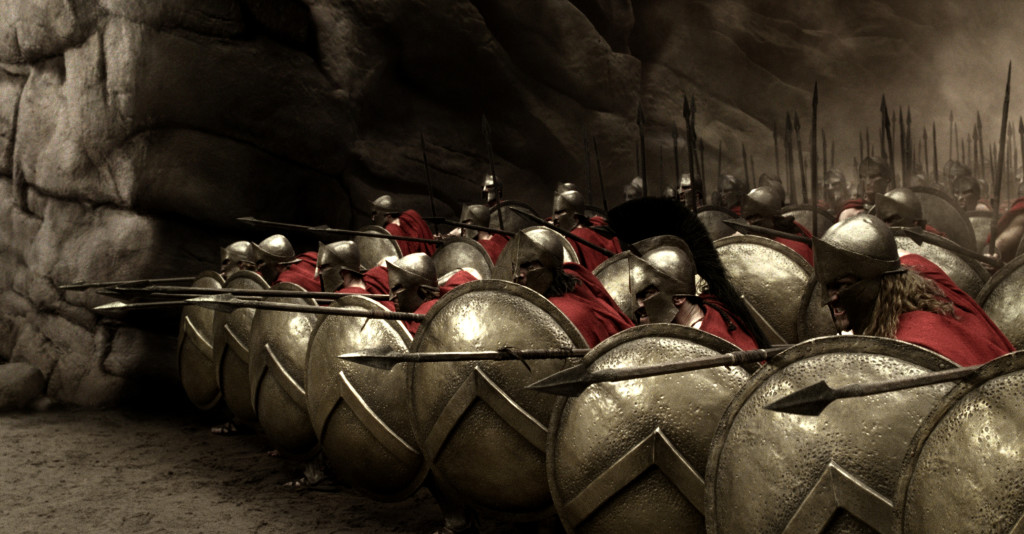What “300” Can Teach You About Crisis Communications
Very loosely based on actual events, the movie “300” portrays the Battle of Thermopylae–where 300 Spartans faced 100,000 Persian solders in one of history’s most famous last stands–in gloriously gory fashion.
If you’re squeamish and not a fan of action flicks then “300” is not the film for you. But regardless of whether you’ve seen the movie or not, there are some great lessons you can learn about crisis communications.
You Have to Get Your Mind Ready
Crisis can fundamentally make or break your organization, so you’d better be ready to wrap your mind around it.
Spartans lived with the understanding that one day they may be required to enter battle. Your organization should think along similar lines.
The biggest mistake your team can make is to hope that crisis will never stare you in the face. Unfortunately, crisis is no longer a question of if but when. If you choose to run your operations without considering what could potentially occur then you will be destroyed when they finally do.
You Have to Prepare
At first glance you might think those Spartans arrived a little underprepared, loin clothes and all, but I’m here to tell you that even in the Hollywood interpretation they stepped up to fight with everything that they needed.

All they required were swords, spears, helmets and the famous Spartan shields. They brought those preparations forward with them into the battle zone and decimated anyone who faced them. In crisis communications, much the same is required.
Start readying your organization by sitting them down in a formal setting. Help them realize what was just mentioned above–that crisis will eventually come knocking on your front door. After they swallow that realization, it’s important to open the table to a brainstorming session to develop all and any crises that may occur. It doesn’t matter how ridiculous they may sound–out of the box thinking should be encouraged.
With your list of potential situations, start to develop responses for each of them. How would you handle them? What would you need to say? What would you use to shield yourself? How would you strike back against the rumor mill?
Stick to Formation
A common mantra of the Spartan was, “You’re only as strong as the Spartan standing next to you.”
The 300 Spartans came equipped with their preparations, but that wasn’t the full extent of their stand. When the chaos erupted, they stuck to their formation–one solid, orchestrated movement of sword and shield. This allowed them to defend themselves against the tremendous force crashing upon them.

When crisis occurs, preparation is one thing, but formation is another entirely. Often times, crisis hits an organization and everyone scatters under the pressure rather than standing consistently together. The president gives one statement to the press and the guy in the mail room gives another. This is due to a lack of formation.
It’s important to determine how your organization will structure itself during the madness. Assign responsibility to your various staff members and make sure the entire company knows what position to take. It’s also helpful to set up policies for media relations during the crisis. Appoint one person as your spokesperson and take steps to insure that no one else undermines that role. Your response will only be as strong as the discipline of the person standing next to you.
Train, Train, Train
It’s a well documented fact that Spartans were some of the best–if not the best–warriors of all time. This didn’t happen over night. They trained strategically, vigorously and consistently.
With your mindset, preparations and formation, it’s important to train your organization. This can be accomplished by setting up monthly or bimonthly mock crises. Have someone select a random situation from your preparation file and run through the events as if it were actually occurring. Afterwards take time to reflect on what happened.
At the college I attended, the Director of Marketing and Public Relations services would do this religiously. You’d be walking to class one day and you’d catch her leading the president and local police through a mock crisis. She’d wave as you passed by and continue with the simulation.
Finally, Stand
When crisis knocks on the front door of your organization, lean into your preparation, formation and training.
Our little framework breaks down at this point because in the movie (spoiler alert), the 300 die at the hands of the Persians. What’s important to consider is what actually occurred in the true historical context of the Battle of Thermopylae. Because the 300 decided to stand in the face of desolation, scholars say that they singlehandedly turned the tide of the Persian War and ensured the eventual victory of Greece.
So in any situation that you face be sure to stand your ground and make the right decisions. If you do so, I promise that you will lead your company to victory.